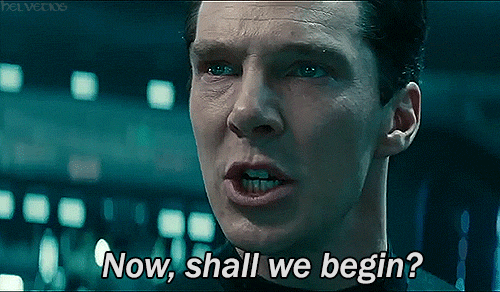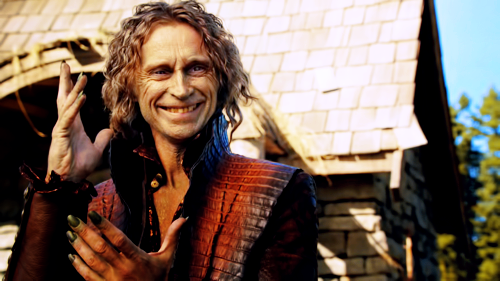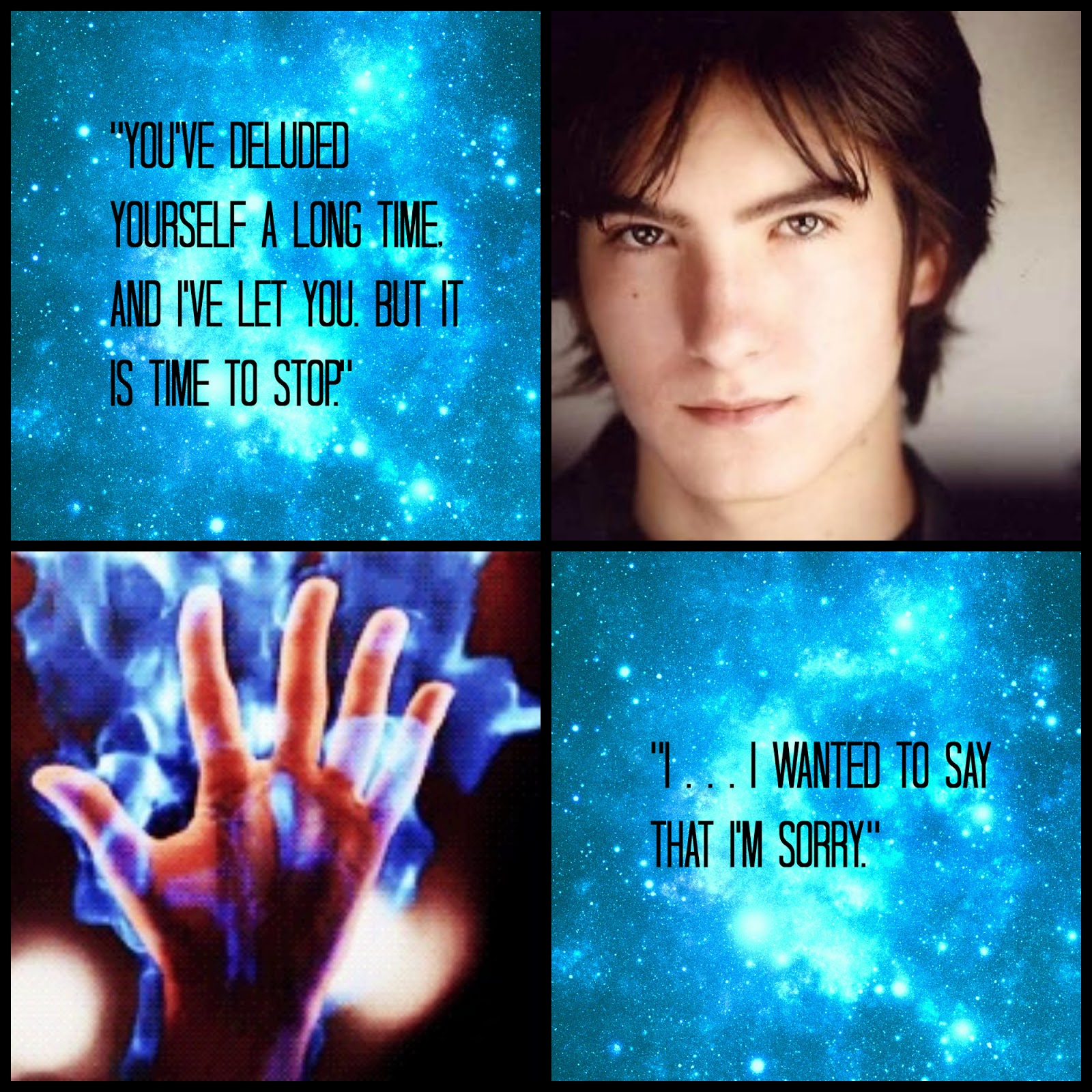For a while I thought that every character had to look completely different. To create diversity amongst my cast, I'd meticulously make sure that each character had a different hair color and eye color. Inevitably I needed to go past the variations available with combinations of blond, brown, black and red with blue, green, hazel, and brown. So I'd then vary the lengths of the hair and whether the character had freckles or not. This way, I figured, every character was different and none seemed the same.
If only things were that simple.
 |
| Original Image from 365 Images. Edited by Annika S. using PicMonkey. |
After reading for years and years, I now realize character diversity isn't as easy as just drawing them differently. We all know they need separate personalities and fears and favorites and back stories, among other things. I wasn't just wrong on that front, though. My entire system for creating a character's appearance was so insufficient that I groan to think about it.
Character appearance does matter. True, not as much as a personality does, but it just so happens that when done right, a character's appearance clues readers in to the nature of the character in question.
So what things should we be looking at when decided how a character looks? I thought of six main factors to consider.
First of all, the character's
ancestry, culture, home, and time period.
Ancestry is what I consider to be the cornerstone of character appearance. Someone who is French by descent won't have browned skin that never gets sunburned. Likewise, someone whose family tree is populated by Native Americans will not have skin so pale that it glows in the right sunshine and gets burned even in overcast weather
like mine.
And you have to narrow down the gene pool even further. What coloration did the parents have? This may not matter if the parents are never even featured in the book and are never described. It will be assumed that they looked something like the character in question. But if you describe a mother with Asian features and a father who is European with black hair and dark eyes, it will raise a few eyebrows if your character is a natural platinum blond with pale green eyes. Of course, making the character adopted overcomes that issue, but it may be simpler for your plot and character development just to change the way the character looks.
Also, culture, home country, and time period. This will determine the character's piercings (and where), tattoos, clothing style. jewelry, hair style, makeup (if any), weapons, etc. This becomes a research task if you aren't writing a story set in the current time period or your home country. Or, if you're writing fantasy or sci-fi, "research" can be replaced by "imagination."
For instance, I was working on Nitri from
Taken and was trying to work out his clothes.
Taken is a fantasy but its society is very European Middle Ages, so I did a little digging on the ordinary culture surrounding clothes back then. I found a little factoid that coats with long tails were a symbol of rank and wealth. Nitri, being the vain charrie he is, obviously would have loved to be wearing some sort of status symbol. Hence, he now wears a coat with long tails (that he stole, but more on that later).
Occupation is the next one. Although this may not seem a very important thing to think about if your charrie will be leaving home soon anyway to go chasing after a dragon or some other evil, it's actually a very important factor in not only the character's appearance but also the skills he has and how he behaves.
Let's take a blacksmith for example. How do you think he'd look? Heavy leather apron, built-up arm and chest muscles, callouses on his hands, maybe a few burn scars, and smoke and coal dust all over his clothing and skin. If I came across a blacksmith that didn't have a black build-up under his nails and had all the muscle mass of a beetle I'd be pretty suspicious about his professed occupation.
Or take a businessman, if we're thinking in more modern times. He may not dress in a clean-cut suit and tie all the time, but he certainly would when he's just been to work. Maybe he's accustomed to wearing a Bluetooth on his ear, and carries a small stack of business cards in his suit pocket. He probably wants to appear clean and professional, so chances are he won't have any unruly facial hair (unless his reputation and position is already so high that no one can judge him for it anyway) and his hair will be freshly washed and combed. Unless he also engages in metal working or carpentry as a hobby, he probably doesn't have very calloused hands and his skin won't be too tanned since he's in an office all day long.
Next up is the character's
circumstances. This includes things like wealth, reputation, and social support. Obviously a character who is bankrupt will dress very differently from a millionaire. However, the bankrupt charrie may have a circle of do-good friends and family that help support him and provide him with, say, a decent winter coat. That same character, if he's reputed to be a low-life, may not have that same social support and will therefore have to tough out the winter with just a holey sweater his late mother knit for him when he was still in college. This one is also linked to the occupation factor. A janitor will most likely not have hoards of money (unless he had a super-rich uncle who just died and left him all his belongings). Consequently, he'll dress in clothing he's owned for a few years and bought at sale price or at a thrift store (in which case it will be even older). The age of his clothing will determine if he dresses fashionably or not, and how faded/worn/stained the clothing is.
Take, again, Nitri, who is essentially a young man with no sense of responsibility and therefore lives in an abandoned inn in the worst sector of town, and keeps himself alive by stealing from whoever in vulnerable. Being a orphaned thief, he has no family or kindhearted friends to help him out, and given his frequent clashes with other thieves and criminals no stranger wants to improve his living conditions. These are his circumstances. Therefore, his clothing is pretty ragged - full of holes and tears from age and fights, threadbare, faded, and pretty darn filthy. I wouldn't go near his clothing with a ten-foot pole. His hair is greasy and knotted and dusted with dirt. He's got scars from old fights and is pretty skinny and short from undernourishment. However he also dresses practically for his "occupation" by keeping his loose coat belted around his waist so it doesn't interfere with his fighting style and keeping his hair cut at a reasonable length. Also, he's strong despite being skinny because of the constant use his muscles get and the increase of food he began getting once his skills as a thief improved.
Backstory is also important. Often other factors are woven in with this, such as the character's ancestry and occupation. There's more to it though. How was your character treated as a child? What was viewed as appropriate appearance by his parents? Did he grow up in a penny-pinching family? What kind of peer pressures was he under? What occupations has he moved through? Was he influenced as a child to grow up to be a free-loader?
Your character's reactions to all these things will help shape how he looks. Say he went through a bad relationship with his parents and wanted to rebel. Not only would that influence his character, it would come through in his appearance. Maybe he dyed his hair black or red, or got a Mohawk. Perhaps he decided to try out being a goth. Or maybe his parents were goths themselves, and in an attempt to be perceived as "normal" by his peers he started wearing button-up shirts and more formal outfits. Maybe he's a recovered drug addict and made some permanent choices while high. Maybe he got a weird tattoo or got a nose ring, which he regrets now that he's been through rehab and trying to piece together a self-sufficient life. Maybe the drugs made him prematurely bald. There are any number of things which could result from something in someone's past.
The next is
personality and values. A modest character will dress very differently from a girl who is trying to get a boyfriend by any means possible. Also, I know women who keep their hair just a couple inches long because it is easier to take care of and less time consuming. Likewise, someone who is lazy will probably not put as much time into her appearance and will end up looking more disheveled and dirty, and someone who believes that appearance matters most of all will make every effort to dress fashionably.
Also, what are the character's religious beliefs? This is under the values part. Some religions make it mandatory for certain clothes to be worn, or simply have a piece of clothing instilled as tradition. The Jewish yamaka and the Muslim burka are two examples of this. Christians advocate modesty but not all Christians adhere to that belief, or interpret "modesty" differently. There's a lot of variation.
 |
Tyv's (left) and Nitri's (right) appearances compared.
Drawings belong to Annika S. |
I can give an example on this, again from the cast of
Taken. While Nitri doesn't make any effort to be clean but values prestige (therefore the long-tailed yet filthy coat he refuses to take off), his friend Tyv cares a little more about cleanliness and practicality and not as much about status symbols. They live in the same conditions and have the same "occupation," but dress very differently due to their values and personality. Tyv's clothes are faded and stained, but he patches up the holes and tears because he doesn't want his clothing drafty (Nitri does not do this because he thinks patches ruin the appearance of the clothes more than the holes do). He stole his clothing based on durability and practicality, while Nitri stole it mostly based on appearance. Tyv also makes an effort to wash his clothes every now and then, as well as his hair and skin.
For this reason he doesn't smell quite so bad. Tyv doesn't care about status symbols so instead of using a years-old coat which stands out from the typical cloaks used in the town, he uses a simple, unnoticeable waist-length cloak made from durable wool. Simply because of his personality and values, he doesn't look quite as shabby as Nitri does.
(Nitri): I take offense to that!
Then wash every now and then.
The last is a pretty minor consideration, in my opinion, but it is a consideration nevertheless. Think about
color associations and cliches when designing your character's appearance. A villain that hasn't yet said a word but dresses in a lab coat and goggles will instantly be taken to be a mad scientist, "mad" being the key word. Likewise, a guy dressed all in black is going to portray a negative (at best moody) impression to both readers and other characters. Either he'll be labeled instantly as a bad guy or an emo.
Colors are also associated with certain things, and this varies from culture to culture. Working from my cultural associations, red means love and war and anger. I associate green with nature or the military, depending on the shade. I also associate it with that leprechaun mascot for Lucky Charms, which is probably more of a personal association than a cultural one. When I see blue I think of the ocean, the sky, peace, or nobility. As a Christian I think of white as a representation of purity. If I see a woman in a movie dressed in a flowing white gown with accents of green, I'm going to think of a good, moral character who lives in the woods and helps along the heroes in their time of need. Add in a red sash and I may think that this woman has a bit of fighting skill. Or turn the dress from white to black and my perception will change to a witch. Change it again to blue, and I'll think noblewoman. Red and I think stunningly gorgeous love interest. And this is all based on the mere color of her dress, without even touching on her hair color, facial structure, or eyes! Get the point?
Bottom line for this factor is that we've come to associate certain looks with certain types of personalities. This can be a bad thing in your writing or a good thing - for instance it can be used to portray the nature of your character instantly to readers with just a quick description. On the other hand, it can come off as cliche. It's up to you to decide. I recommend watching some of those special features on your movies and TV seasons that focus on the costume design - really fascinating stuff.
Those are the factors I could think of that should influence a character's appearance, which matters because it provides the reader with an instant impression of who your character is.
Can you think of any more factors that should be taken into consideration when designing a character's appearance?




















